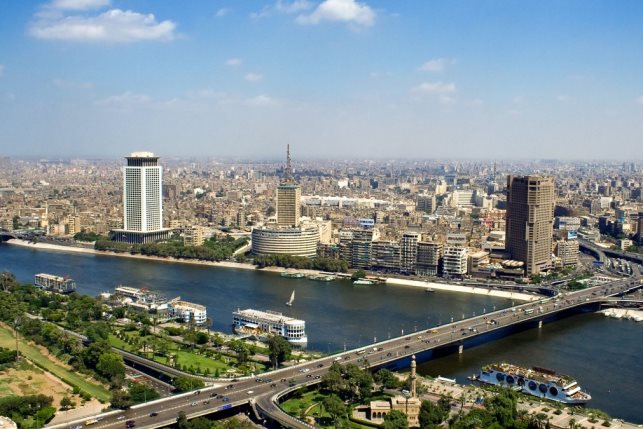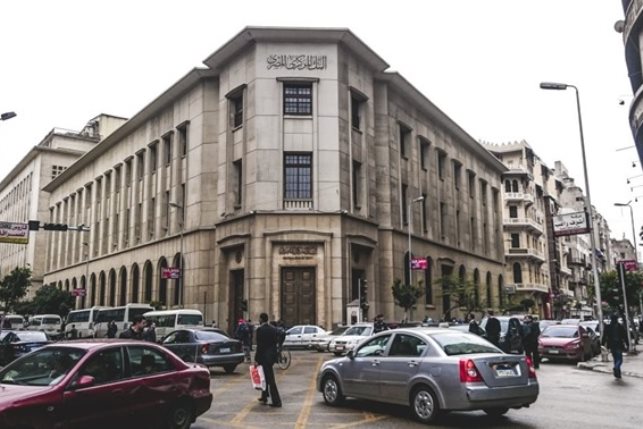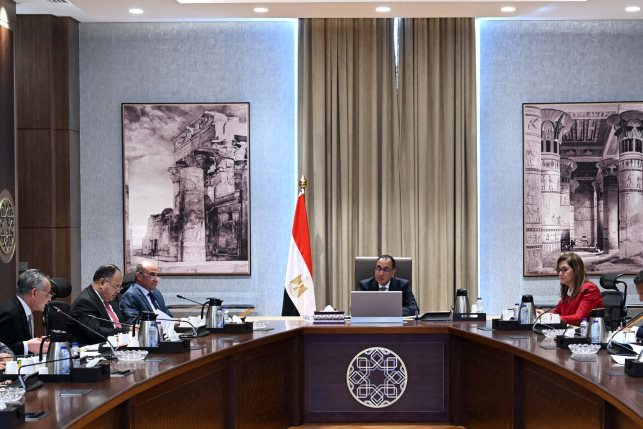Big and Green ambitions, and sustainable practices with Unilever’s Shazia Syed
Business Today Egypt sat down with Syed to discuss Unilever’s global and regional vision on sustainability, how has sustainability impacted company and consumer habits, and its time at COP27

Applying sustainable practices at major international FMCGs has become more and more vital as the realization of the effects of consumption habits on the environment continues to grow, with consumers advocating for more eco-friendly products and manufacturers.
As one of the leading FMCGs in terms of its progress in sustainability, Unilever has adopted several programs dedicated to sustainability and understands that the true cost of doing nothing is simply too high.
“If you calculate the cost of producing bottles from virgin plastic on the climate and the planet, it is much more expensive [than manufacturing those made from recycled plastic],” says Shazia Syed, General Manager of Unilever North Africa, Levant & Iraq.
Business Today Egypt sat down with Syed to discuss Unilever’s global and regional vision on sustainability, how has sustainability impacted company and consumer habits, and its time at COP27.
Sustainability is the topic on everyone’s lips, what is Unilever’s global vision when it comes to sustainability?
 Shazia Syed - General Manager of Unilever North Africa, Levant & Iraq
Shazia Syed - General Manager of Unilever North Africa, Levant & Iraq
Sustainability is at the heart and core of everything we do, it is well entrenched across our processes - starting from sourcing the materials, and production, to all the way to the product placed on the shelf.
Sustainability and resource preservation and regeneration come at the top of Unilever's priorities, that’s why sustainability is at the heart of its production and manufacturing operations.
Looking at the key actions Unilever has made, you will see that there are some audacious goals that we have set for ourselves in terms of business waste, food waste, and net zero emissions. Our vision is to be the global leader in sustainable business, demonstrating how our purpose-led, future-fit business model drives superior performance.
We at Unilever have bold ambitions, but we believe that this is the only way to establish a high-performance culture as well as make a difference in the world
We believe that to achieve our goals and grow our business, we must act immediately to protect the planet against climate change, and work hard to raise consumers’ awareness of climate change challenges around the world.
Sustainability and green practices come with costs; when speaking about Unilever, how much of this cost is distributed to consumers and/or other stakeholders?
This is true, it is coming at a cost. For example, the cost of plastic bottles made from recycled plastic is 10-15% more expensive than a plastic bottles made from virgin plastic.
However, If you calculate the cost of producing bottles from virgin plastic on the climate and the planet, it is much more expensive [than manufacturing those made from recycled plastic], and the funds needed to repair the damage will be vast.
At this stage, we are promoting sustainable practices and we do not consider it as a cost but as an investment for a more sustainable world - an investment which must be made today
How we, at Unilever, look at it is that not only are we working on a very ambitious and sustainable program, but we are also busy educating our communities, our partners, and suppliers. We want to make this a complete cycle. This is not going to be easy. This is not going to happen overnight, but I think there is a burning passion for this, and I believe that Unilever Egypt is well on our way in this journey.
How does Unilever integrate sustainability, in both its business strategy and product lines?
Unilever has a clear roadmap with a very focused three-point agenda.
The first pillar revolves around improving the health of the planet, and is primarily focused on measures related to climate change such as reducing greenhouse gas emissions from all of our factories by 50% by 2030, introducing renewable energy sources until we reach net zero emissions by 2039, and addressing waste – whether it is food waste, water waste, or energy waste.
Raw materials sourcing is a big focus for Unilever, production inputs are gathered only from accredited suppliers that follow sustainable practices in their operations, whether it is industrial or agricultural raw materials.
We are also working to upscale producers and farmers and support them in following sustainable models for their business activities
A waste-free world is another main component, focusing on packaging materials and reducing the usage of virgin plastics.
Unilever has bold commitments and goals to achieve by 2025, which are to reduce the usage of virgin plastics by 50%, equivalent to 100k tons of plastics across Unilever’s factories globally; transition packaging materials to be made of 25% recycled plastics; collect and process more plastics than we sell in the markets in which we operate; and make 100% of our packaging material reusable or recyclable by 2025. We also have several programs dedicated to reducing the percentage of water used in our operations.
Additionally, the company plans to reduce food waste by 50% by 2025 and expand its zero-waste efforts to landfills to further implement circular economy models
The second pillar focuses on improving the health of our consumers, whether it is mental health or physical health, and raising awareness about healthy nutrition and eating habits which involves promoting the consumption of plant-based protein instead of traditional animal protein; reducing the intake of salt in everyday diet; other hygiene factors pertaining to oral health and handwashing; and addressing food waste which is a large source of tension in the world.
Our third pillar is about contributing to an equitable and socially inclusive world, creating better conditions for every human being and support the fight against racial and gender discrimination, as well as providing job opportunities for youth, and opening up our organization to people with disabilities.
Could you elaborate on how these are implemented in Egypt?
When it comes to Egypt, we are very much in sync with Unilever’s philosophy and mandate, and are aligned with Egypt’s 2030 Vision. I see it as a classic example of when we talk about the private sector and the government successfully working hand in hand, and we feel strongly that it’s only then that the country and the companies will grow.
Since 2008, Unilever Egypt has done reasonably well; when you look at our gas emissions, we have reduced it by around 72%, reduced energy consumption by 29%, and water by 42% in our four factories. In 2014, we managed to reach zero waste to landfill, directing the waste to generate energy instead.
We have an ambitious plan to fully rely on renewable energy in our local factories by 2030
Until then, we annually purchase the electricity needed for manufacturing operations with “Renewable Energy Certificates” from the Benban solar power plant, which we see as an investment in Egypt’s renewable energy infrastructure to enhance and increase its capacities.
So, when we look at the company’s performance, we have made huge inroads - whether it comes to water, energy, landfill, or waste – and we are very proud of our achievements.
When it comes to sourcing raw materials, we seek to work only with accredited suppliers that follow sustainable production methods in their operations. The palm oil and tomato paste used in all our products are 100% sourced from such suppliers, locally and imported.
In terms of packaging, we are very conscious of the fact that packaging contributes significantly to the waste we see around the world
Our liquid handwash products are made using 100% recycled plastic bottles, and the percentage of recycled plastic in our products, in general, is more than 20%, and we aim to increase this to more than 30% by 2025, as well as managing to reduce the usage of virgin plastics by more than 150 tons since 2020.
We have succeeded in ensuring 70% of our paper and cardboard is recycled, with the proportion of recyclable packaging materials exceeding more than 65% of our total packaging materials, we are aiming to get to 100% by 2025, and that is non-negotiable.
Talking about the second pillar of Unilever’s sustainability agenda, which has to do with health and well-being in Egypt, we have recently started working with the Healthcare Authority and we are very excited that this partnership will help us scale the initiative beyond Egypt.
It’s a very interesting program called “Your Health; Hold it with your Hands and Teeth” [Sehatek Emseek Feeha be Eedeek we Senanek], which focuses on raising awareness of proper hand washing and dental care to fight diseases and infections. I believe that focusing on these will really up the healthcare game in Egypt, and our intent is to reach over 400k people.
The second pillar also focuses on fortifying and improving the nutritional value of what people have every day in their diet. One of the key innovations that we have launched this year is a fortified bullion, it is fortified by iron and this will guard against anemia and malnutrition. We are looking to impact 10 million people in Egypt by the end of its first year in circulation, and aim to turn this initiative into a national platform to educate and promote healthy eating habits and norms.
When I talk about the third pillar, which has to do with contributing to a fairer society, in Egypt we have launched three powerful programs
The first one is the Safeer initiative for helping men find work, and currently employs 400 men. It is coupled with another powerful program, Zainab, which is focused on providing employment for women and currently employs 900 women. We also have a program called Eradaa which is focused on providing job opportunities for blind and visually impaired people to run and manage telesales. Together, these three programs have paved the way for a much more inclusive Egypt.*
*The Safeer and Zainab initiatives help distribute Unilever products in villages and rural areas across Egypt, with a current sales volume exceeding EGP 200 million last year. Through Eradaa, Unilever has trained 300 young men and women on telesales and how to use computers (equipped with technologies and hardware suited to their specific needs). It currently employs around 50 people, with a sales volume of EGP 120 million in 2013.
Would you say that sustainability has a large impact on how Egyptian and North African consumers choose brands/products when shopping? In what way?
Climate change is impacting everyone, and the most affected countries are those most venerable. The African continent is responsible for less than 3% of global emissions but it is among the most affected.
Consumers in North Africa are becoming more aware and concerned with climate change and are starting to dig deeper into companies’ sustainability programs and initiatives to understand what they are doing to address this issue
This year, for example, reduced rainfall in Morocco decreased wheat crop yields, and therefore, the country imported wheat to combat this shortage which increased prices, and consumers were affected.
Additionally, we are witnessing growing awareness and acceptance of trends that were previously rejected such as buying products packed in recycled plastic bottles, consumers as advocates for brands, and companies shifting towards greener and circular economy models.
How is Unilever currently measuring its climate impact in the region?
Our goal in the region is to drive change, and it is too early to calculate or measure our impact because, as a region, we are behind developed countries due to many reasons. However, we are working on several ways to bring this topic to the top of everyone’s mind.
We are lobbying and advocating for regulations that support and push the green economy and circular economy agenda. Unilever was among the companies advocating for the use of recycled plastics, and in 2019, these standards were approved, allowing the production of handwash in 100% recycled plastic bottles. Currently, we are engaged in discussions to allow the use of food-grade recycled plastics in food products.
Our second focus is on the consumer, mainly in increasing consumers’ awareness about climate change challenges, plastic waste, and food waste, and to continue Unilever’s sourcing of raw materials from suppliers that adopt sustainable production methods. Despite raw material costs increasing, we have not changed our approach and will continue to source from sustainable sources and suppliers.
Unilever was present at COP27, could you describe the company’s activities during the two-week summit and its goals for participating?
COP27, happening at Sharm El-Sheikh this year, is very exciting for us here in Unilever Egypt. Unilever had dual representation at the forum; having our global representatives, as well as local, attending. We participated in different discussions and roundtables.
I believe that it is a very important and very pertinent forum right now, one that is more relevant than ever before in history
As one of the biggest FMCGs worldwide, we believe this COP is make it or break it, and it is the time to turn pledges into action before it is too late to act.
Our goal in COP27 was to demonstrate Unilever’s leadership on climate justice and ensuring a fair and just transition, further COP27 advocacy objectives by calling on governments to prioritize investments in adaptation and resilience, as well as work on creating policy frameworks that incentivize the private sector to do the same.
As a company who is extremely passionate about sustainability, and has audacious goals, we are very excited about having participated, and hope for a positive impact coming out of COP27 – from impactful policies and regulations and accelerating the sustainable journey.





